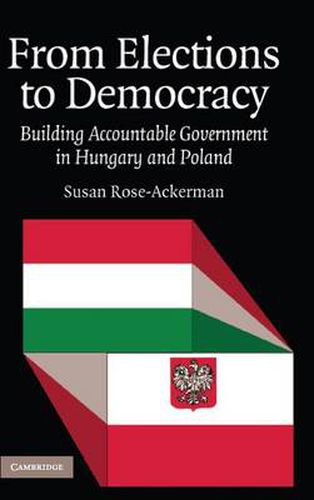Readings Newsletter
Become a Readings Member to make your shopping experience even easier.
Sign in or sign up for free!
You’re not far away from qualifying for FREE standard shipping within Australia
You’ve qualified for FREE standard shipping within Australia
The cart is loading…






The countries of Central Europe in the first round for admission to the European Union have all established constitutional, electoral democracies and market economies. However, much remains to be done to achieve fully consolidated democratic states. This study documents the weaknesses of public oversight and participation in policymaking in Hungary and Poland, two of the most advanced countries in the region. It discusses five alternative routes to accountability including European Union oversight, constitutional institutions such as presidents and courts, devolution to lower-level governments, the use of neo-corporatist bodies, and open-ended participation rights. It urges more emphasis on the fifth option, public participation. Case studies of the environmental movement in Hungary and of student groups in Poland illustrate these general points. The book reviews the United States’ experience of open-ended public participation and draws some lessons for the transition countries from the strengths and weaknesses of the American system.
$9.00 standard shipping within Australia
FREE standard shipping within Australia for orders over $100.00
Express & International shipping calculated at checkout
The countries of Central Europe in the first round for admission to the European Union have all established constitutional, electoral democracies and market economies. However, much remains to be done to achieve fully consolidated democratic states. This study documents the weaknesses of public oversight and participation in policymaking in Hungary and Poland, two of the most advanced countries in the region. It discusses five alternative routes to accountability including European Union oversight, constitutional institutions such as presidents and courts, devolution to lower-level governments, the use of neo-corporatist bodies, and open-ended participation rights. It urges more emphasis on the fifth option, public participation. Case studies of the environmental movement in Hungary and of student groups in Poland illustrate these general points. The book reviews the United States’ experience of open-ended public participation and draws some lessons for the transition countries from the strengths and weaknesses of the American system.